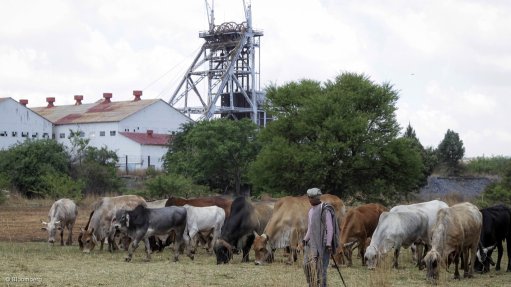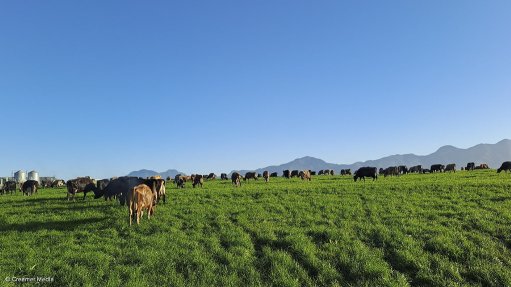M&A activity impacted on several fronts in 2022 – HSF
Merger and acquisition (M&A) activity was impacted negatively in the second half of 2022 as a result of several factors, including Russia’s invasion of Ukraine, inflation, interest rate rises and political uncertainty, reports professional services firm Herbert Smith Freehills (HSF).
The firm notes in its report titled ‘Global Merger and Acquisitions Outlook 2023, Headwinds, Tailwinds and Fog’ that these factors served to slow the “restless” M&A activity, which was strong in the beginning of 2022 and which had been a trend from the middle of 2020 onwards.
The value of global M&A averaged about $1-trillion for eight consecutive quarters from the third quarter of 2020 to the second quarter of 2022, with 2021 having seen record deal values of over $4.2-trillion.
However, there was a marked deterioration in M&A conditions in the second half of 2022, with deal values of only $1.4-trillion – a 33% decline compared with the first half of the year.
Going forward, HSF reports that the New Year is presenting “a number of themes” continuing to impact and influence M&A transactions and their terms.
Deals have become more challenging to finance owing to soaring interest rates across a number of key jurisdictions. Over 2022, HSF points out that US central bank interest rates increased from 0.25% to 4.5%, while rates in the UK went from 0.25% to 3.5% and from 0% to 2.5% in the Eurozone – in each case the highest they have been in more than a decade.
A more challenging financing environment means that this year, buyers, in particular private equity sponsors, are expected to be more selective and will need to put more equity into deals.
This, HSF says, may see valuations adjust at lower leverage and higher cost of financing, making internal rate of return targets more challenging to achieve.
Deal terms favouring sellers is another trend expected to impact M&A activity this year. In this regard, HSF reports that, with the increasing dominance of private equity buyers in the M&A market, 2022 saw a noticeable shift in deal terms that affected all participants in the market in certain situations.
Private equity sponsors, particularly in competitive auction processes, were increasingly willing to rely on their due diligence and seek less protection from sellers to make their bids more attractive, HSF notes.
This has led to sellers demanding fully “no recourse” terms and pushing to delete warranties that have traditionally been accepted by sellers. This shift, HSF says, made life difficult for strategic buyers – particularly listed companies, who wanted to participate in auction processes but may have a more risk averse approach to M&A.
However, HSF says a more difficult M&A market may reverse this trend as the year progresses.
Further, the Covid-19 pandemic and government actions to mitigate it led to buyers needing to take a hard look at their gap covenants during 2020, coming under further scrutiny during 2021 and 2022 as enforcement actions for “gun-jumping” appeared to be a priority for the European Commission.
A number of the trends highlighted in HSF’s report point to gap covenants continuing to be a focus for both buyers and sellers. These include lengthening timelines between signing and closing due to increased regulatory, foreign direct investment and antitrust scrutiny; reputational concerns around environment, social and governance matters; and the need for targets to protect their businesses in a volatile geopolitical environment.
As with other deal terms, HSF says the competitive M&A landscape has left buyers often needing to accept less protection on gap covenants than they would wish for.
If buyers find themselves with increased bargaining power over the coming year, HSF says it is likely they will capitalise on that by asking for terms that give them increased confidence in the operation of the target business between signing and completion.
Inevitably in any downturn, marginal businesses will be vulnerable to the combination of a slowdown in consumer spending and higher borrowing costs, as evidenced by several high-profile insolvencies in the second half of 2022. HSF expects this trend to continue this year.
However, these situations present opportunities for well-funded buyers to capitalise on the availability of businesses that may be fundamentally good in the long term at significantly reduced valuations, HSF says.
With private equity funds, special purpose acquisition companies (SPACs) and certain strategic buyers still flush with cash, HSF expects such funds to act on M&As by taking advantage of distressed or special situations, whether by participating in full acquisitions or providing more creative funding solutions to distressed businesses.
In terms of SPACs, HSF notes that 2022 was a challenging year to complete de-SPAC transactions following a boom in 2021 and despite multiple US, and a more limited number of European, SPACs looking for targets.
Fewer than half the number of de-SPAC transactions that were announced in 2022 were completed, with market conditions and other developments affecting this trend.
Notwithstanding this, HSF expects de-SPACs to continue to complete this year, albeit in diminished numbers, especially since many SPACs have approaching deadlines to deploy their capital.
HSF global M&A head Gavin Davies says that, despite challenging conditions, M&A markets are far from closed. “There remain good reasons that transactions have proceeded amid a turbulent environment.”
Among the drivers of such resilient deal activity are balance sheet planning and the continued hunt for transformational deals by strategics, the deployment of more equity by funds and availability of private credit, and the opportunism on the part of well-positioned buyers, including through currency arbitrage and in distressed situations, he adds.
Article Enquiry
Email Article
Save Article
Feedback
To advertise email advertising@creamermedia.co.za or click here
Press Office
Announcements
What's On
Subscribe to improve your user experience...
Option 1 (equivalent of R125 a month):
Receive a weekly copy of Creamer Media's Engineering News & Mining Weekly magazine
(print copy for those in South Africa and e-magazine for those outside of South Africa)
Receive daily email newsletters
Access to full search results
Access archive of magazine back copies
Access to Projects in Progress
Access to ONE Research Report of your choice in PDF format
Option 2 (equivalent of R375 a month):
All benefits from Option 1
PLUS
Access to Creamer Media's Research Channel Africa for ALL Research Reports, in PDF format, on various industrial and mining sectors
including Electricity; Water; Energy Transition; Hydrogen; Roads, Rail and Ports; Coal; Gold; Platinum; Battery Metals; etc.
Already a subscriber?
Forgotten your password?
Receive weekly copy of Creamer Media's Engineering News & Mining Weekly magazine (print copy for those in South Africa and e-magazine for those outside of South Africa)
➕
Recieve daily email newsletters
➕
Access to full search results
➕
Access archive of magazine back copies
➕
Access to Projects in Progress
➕
Access to ONE Research Report of your choice in PDF format
RESEARCH CHANNEL AFRICA
R4500 (equivalent of R375 a month)
SUBSCRIBEAll benefits from Option 1
➕
Access to Creamer Media's Research Channel Africa for ALL Research Reports on various industrial and mining sectors, in PDF format, including on:
Electricity
➕
Water
➕
Energy Transition
➕
Hydrogen
➕
Roads, Rail and Ports
➕
Coal
➕
Gold
➕
Platinum
➕
Battery Metals
➕
etc.
Receive all benefits from Option 1 or Option 2 delivered to numerous people at your company
➕
Multiple User names and Passwords for simultaneous log-ins
➕
Intranet integration access to all in your organisation





















